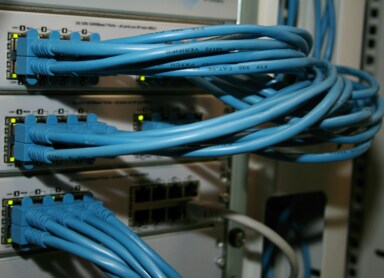Sustainable development – definition and basic principles
Sustainable development is a concept that assumes the harmonious coexistence of three main elements: environmental protection, social equality, and economic growth. Its definition is most often associated with the 1987 document "Brundtland Report," in which sustainable development is described as development that meets the needs of the present generation without compromising the ability of future generations to meet their own needs.
Sustainable Development Ideas – An Analysis of Concepts and Their Significance
The core principles of sustainable development include the protection of natural resources such as water, soil, and biodiversity, as well as the promotion of social justice through access to education, healthcare, and economic opportunities for all. It is essential that actions taken to promote sustainable development are long-term and integrate various aspects of social and economic life.
Over the past few decades, numerous concepts and ideas related to sustainable development have emerged. Among the best known are the "green economy," "civil society," and the "circular economy." The green economy is based on the principle that economic development should proceed in a way that minimizes negative environmental impacts. Civil society, on the other hand, emphasizes citizen participation in decision-making processes, contributing to greater transparency and accountability.
The circular economy, in contrast to the traditional linear model, promotes the reuse of resources, thereby reducing waste and the consumption of raw materials. It is crucial that changes introduced under these concepts are based on solid social and ecological analyses, allowing for their effective implementation in diverse local and global contexts.
Read also: Energy Efficiency: A Key Factor for Sustainable Development and Environmental Protection
Examples of Sustainable Development – Inspirations and Models
Across the world, there are many successful initiatives related to sustainable development. Among them, the Nature-Based Solutions (NBS) model stands out, which involves using natural ecosystems to address social and environmental challenges such as climate change and environmental degradation. NBS offers various benefits, including improved air quality, increased biodiversity, and better health for local communities.
Another inspiring example is the "Zero Waste" movement, which aims to eliminate waste through product redesign, material reuse, and recycling. Cities such as San Francisco have implemented strategies aiming to achieve zero waste by 2030.
Sustainable Development in Practice – Successes and Challenges
Despite many successful initiatives, sustainable development also presents serious challenges. In practice, implementing sustainable solutions often involves conflicts of interest at both local and global scales. An example includes protests by local communities against investments that threaten the natural environment.
Successes, such as increased energy efficiency in construction and the development of public transport, show that positive outcomes are achievable, but they require the cooperation of associations, governments, and citizens alike. It is crucial to understand that sustainable development is a shared responsibility.
Challenges of Sustainable Development – Future Perspectives
Faced with increasingly complex issues related to climate, natural resources, and social inequalities, sustainable development is becoming one of humanity’s key challenges. Looking ahead, there are several aspects worth considering:
-
Technology and Innovation
Technology can become a catalyst for change towards more sustainable development. The growth of renewable energy sources, smart resource management systems, and innovative solutions in urban transport have the potential to reduce emissions and optimize resource use. The future lies in skillfully combining technology with sustainable practices. -
Climate Change
Managing the impacts of climate change remains one of the greatest challenges. The future of societies depends on actions aimed at adaptation and mitigation, such as implementing environmental protection policies, promoting sustainable agriculture, and encouraging eco-friendly consumption habits. -
Social Equality
Sustainable development cannot exist without addressing social equality. Future actions should focus on eliminating inequalities by promoting access to education, employment, and healthcare for all social groups. Including diverse voices in the decision-making process is crucial for achieving a sustainable future. -
International Cooperation
Global challenges require a global response. International cooperation and partnerships among countries, NGOs, and the private sector are essential for sharing knowledge and resources. Through joint actions, the goals of sustainable development can be achieved on a global scale. -
Education and Awareness
Education plays a key role in shaping future generations who will be aware of climate crises and sustainable development issues. Incorporating environmental topics into curricula can help young people develop the skills and attitudes needed to engage in environmental protection activities.
Future perspectives in the field of sustainable development are complex but also full of hope. The key challenge remains combining technology, social equality, and international cooperation to create a sustainable, just, and resilient future for the planet and its inhabitants.






